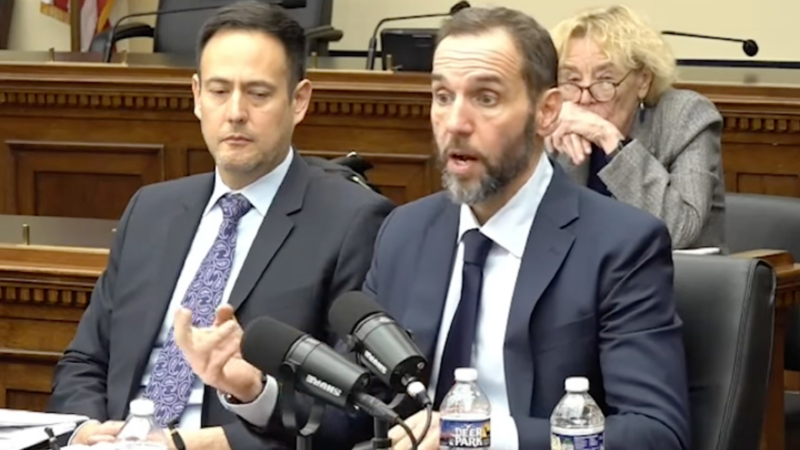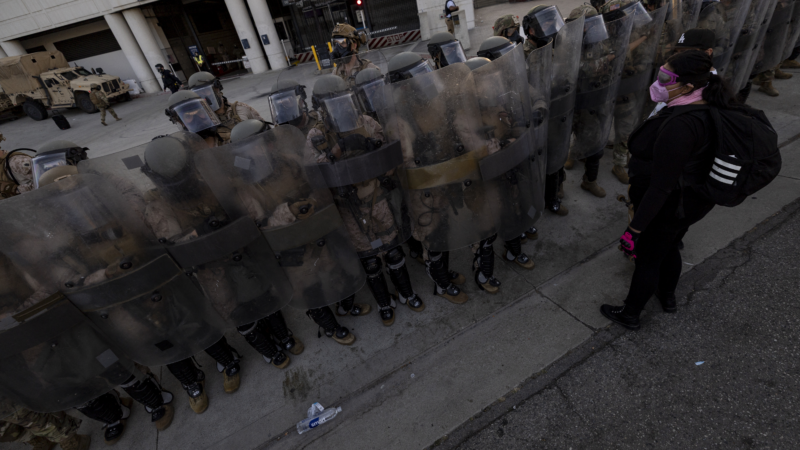Trump administration ends temporary protected status for thousands of Afghans
The Department of Homeland Secretary will not renew temporary protections for thousands of Afghans in the U.S. — setting them up for potential deportation starting on May 20.
Temporary protected status, or TPS, is a government protection for people from countries experiencing conditions such as war or natural disasters, who cannot return there safely. TPS shields them from deportation and grants them work authorizations.
Over 9,000 people from Afghanistan were covered by TPS as of September 2024. The Biden administration first designated people fleeing Afghanistan as eligible for TPS in 2022 in response to turmoil in the country under Taliban rule, which began after the withdrawal of U.S. troops a year earlier. In 2023, the Biden administration extended TPS for Afghans, noting that the ongoing conflict in Afghanistan remained too dangerous for them to return to the country.
But in a Friday statement, DHS assistant secretary of public affairs Tricia McLaughlin said upon review of conditions in Afghanistan, DHS Secretary Kristi Noem made the decision to end TPS for those who had fled the country.
“The Secretary determined that Afghanistan no longer continues to meet the statutory requirements for its TPS designation and so she terminated TPS for Afghanistan,” McLaughlin said.
She added that the decision was based on a review from U.S. Citizenship and Immigration Services (USCIS), as well as a consultation between USCIS and the Department of State. The DHS also plans to revoke TPS for people from Cameroon, the New York Times reported on Friday.
Shawn VanDriver, a military veteran and the president of #AfghanEvac, a nonprofit that helps Afghans resettle in America, said he firmly rejected the Trump administration’s claims that the conditions in Afghanistan did not meet TPS standards.
“The conditions on the ground haven’t improved—they’ve worsened,” he said. “Afghans who were invited here, who built lives here, are now being told they don’t matter. It’s cruel, it’s chaotic, and it undermines everything America claimed to stand for when we promised not to leave our allies behind.”
Tens of thousands of Afghans became targets of the Taliban by working for the U.S. government during America’s war in Afghanistan, the longest in U.S. history. Over the years, Afghans who helped aid the U.S. war effort and their families have been primarily able to resettle in the U.S. through the Special Immigrant Visa program and the U.S. Refugee Admissions Program. But there are a number of Afghans who are still in process of obtaining their SIV status and TPS offered them a layer of stability, according to Andrew Sullivan, the executive director of No One Left Behind, which works to support SIV recipients.
“Many of these allies completed the requisite substantial and valuable service to U.S. national security, yet are still in processing for an SIV because of documents and connections lost in the chaos of the U.S. withdrawal,” Sullivan said. “This decision throws our allies into harmful uncertainty.”
Since President Trump has returned to office, TPS has been among the targets in his administration’s aggressive overhaul of immigration policy.
Last month, DHS similarly attempted to revoke TPS for Venezuelans. That move has since been challenged and was paused by a federal judge on March 31. In his order, U.S. District Judge Edward Chen in San Francisco said the Trump administration’s action would “inflict irreparable harm” on these TPS recipients. He also argued that the government failed to identify “real countervailing harm” in continuing TPS for Venezuelans.
Zohran Mamdani sworn in as New York City mayor, capping historic rise
Mayor Zohran Mamdani took the oath of office in New York City after midnight Thursday. The city's first Muslim mayor, a member of the Democratic Socialists of America, has promised to focus on affordability and fairness.
Rising from the ashes, a symbol of hope at the Rose Parade
Survivors of the Eaton and Palisades Fires find healing and community working on a Rose Parade float to honor the lives and communities lost in last year's wildfires.
The history behind the NYC subway station chosen for Mamdani’s swearing-in
The city shut down the station in 1945 on New Year's Eve. Eighty years later, it's a symbolic venue choice for the incoming mayor's private swearing-in ceremony.
U.S. military strikes 5 more alleged drug boats, killing 8
The U.S. military says it struck five alleged drug-smuggling boats over two days. The attacks killed eight people, while others jumped overboard and may have survived. U.S. Southern Command did not reveal where the attacks occurred.
Capitol riot ‘does not happen’ without Trump, Jack Smith told Congress
Former special counsel Jack Smith also described President Trump as the "most culpable and most responsible person" in the criminal conspiracy to overturn the 2020 election results, according to a transcript of Smith's closed-door interview with the House Judiciary Committee.
Trump will drop push for National Guard deployments in Chicago, LA and Portland, Ore.
Courts blocked troops from deploying in Chicago and Portland, Ore., and the Los Angeles deployment effectively ended after a judge blocked it earlier this month.







